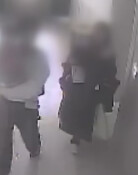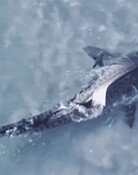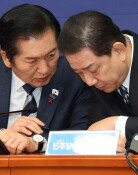College students` academic abilities decline (2)
College students` academic abilities decline (2)
Posted May. 02, 2001 10:52,
According to Professor Lee Chun-Ho of Hoseo University, ``In year 2005, a first year entering college student’s academic competency is predicted to be comparable with the level of a fifth year elementary student.``
``We need a counter-plan, such as an alternative teaching method and the revision of text book, to deal with the decline of students’ academic competency.`` (Professor Choi Hyung-In of Seoul National University)
These remarks were made in the late 1999 when professors from Seoul National University, Yonsei University, KunKuk University, Hansung University, and Hoseo University got together to discuss the crisis in the decline of college students’ academic competency.
The decline of college students` academic competency has been a major topic of conversation for the last couple of years. A systematic strategy is urgently required to analyze the deterioration of academic competency and to seek out for a resolution.
No Need to Study
A sophomore in sociology department of Sogang University said, ``Courses in history are hard for me to understand since I had not taken history class in high school. College students are the scapegoats of the frequent reforms of the college entrance system.``
The frequent changes in the college entrance system instigate students` lower academic performance. Since the College Scholastic Ability Test (CSAT) inquires only the basic questions, it is hard to expect for students to delve into the deeper issues to prepare for the college education.
Need to Have an Accurate View on College Students
Korean History Professor, Lee Tae-Jin of Seoul National University, was stunned by a question raised by his nephew who is a senior in high school. His nephew asked Lee about a Japanese figure named ``Ghitto,`` who was known as the teacher of Ito Hirobumi during Meiji period. Since Professor Lee thought that it would be difficult to understand the person ``Ghitto`` accurately, he asked his nephew how he got to know him. His nephew told him, ``Ghitto, the main character of Japanese comic book, is well-known among my friends.``
``There are increasing numbers of college students who obtain the distorted historical knowledge through computer game, TV drama programs, and comic books,`` said Professor Lee. ``It is hard to find students who are grappling with the historical issues by reading books.`` He also added, ``I wonder if I can evaluate the academic competency of students of the digital generation through the criteria of the older generation.``
College students are different from the older generation in terms of life-style and individual characteristics. The decrease in the number of study groups in which students read cultural and social science related books and the increase of new student activities such as ``Rock Band`` and ``dance group`` in university settings are indicative of the differences between generations.
The so-called Hangul-generation is another noticeable factor in marking this transition. For instance, a newly revised Hangul version of the civil law textbook is popular among the ``new generation`` who are preparing for the judicial examination.
How to Solve
The reform of the college entrance system, which will complement the pitfalls of ``easy CSAT,`` is a fundamental solution upon which everybody agrees. It is necessary to install a college entrance system that will assists students to cultivate abilities to comprehend the basic concepts for the further applications. The College Scholastic Ability Text should function truly as an instrument that enables students to be well equipped for the higher education in college.
The conventional teaching pedagogy in colleges also needs to be innovative. Colleges need to change curriculum and teaching pedagogy suitable for new college students. Like colleges abroad, colleges in Korea need to develop various curricula programs that can prevent students from lower academic performance.
``Most lecture courses are boring because they are run by conventional educational methods, such as using the blackboard. It will be much more advantageous if professors fully utilize the audio-visual equipments, such as computer and video,`` said Kim Young-Hyun, freshman in Korea University.
Math Professor Han Sang-Keun of the Korea Institute of Science and Technology said, ``We need college education that motivates students to learn and that properly meet the levels and demands of students.``
Ha Joon-Woo hawoo@donga.com







